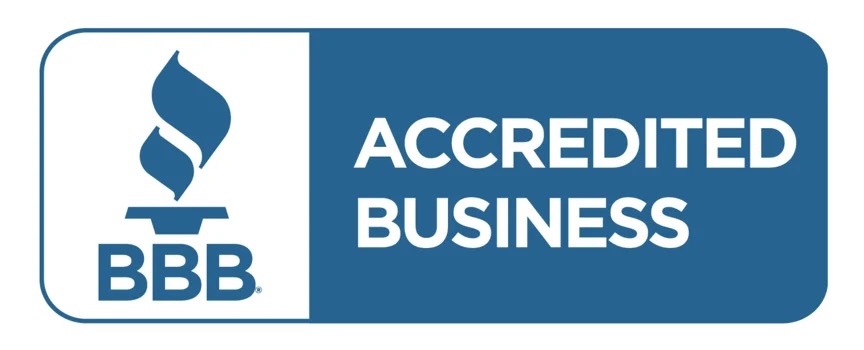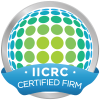Water Damage Restoration Guide for Aurora, Colorado Residents
When water damage strikes your Aurora home, quick and effective response is crucial. From sudden pipe bursts to sewage backups and subsequent mold growth, water-related emergencies require specialized knowledge and proper restoration techniques. This comprehensive guide provides Aurora residents with essential information about water damage cleanup, sewage backups, mold remediation, and reconstruction services.
Water Damage Cleanup
Water damage in Aurora homes can occur from various sources, including severe storms, rapid snowmelt, plumbing failures, or appliance malfunctions. The city’s variable climate and mix of older and newer neighborhoods create specific considerations for effective restoration.
Categories of Water Damage
Water damage is classified into three distinct categories:
- Category 1 (Clean Water): Water from clean sources such as broken water supply lines, tub or sink overflows, or appliance malfunctions involving water supply lines
- Category 2 (Gray Water): Water containing some contaminants such as dishwasher or washing machine overflow, toilet overflow with urine but no feces, or sump pump failures
- Category 3 (Black Water): Grossly contaminated water containing pathogens and toxins, including sewage backups, flooding from rivers/streams, or toilet backflows with feces
Emergency Response Steps
When facing water damage in your Aurora home:
- Ensure personal safety by turning off electricity to affected areas
- Stop the water source if possible and safe to do so
- Remove valuable items from wet areas to prevent further damage
- Document the damage with photos and videos for insurance purposes
- Contact your insurance provider to report the claim
- Call a professional restoration company serving Aurora
Professional Water Extraction and Drying
Aurora’s climate, with its seasonal variations and occasional extreme weather events, influences the drying process. Professional restoration companies employ specialized equipment including:
- Commercial-grade water extractors and submersible pumps
- Industrial dehumidifiers calibrated for Aurora’s elevation and humidity levels
- High-velocity air movers strategically placed for optimal drying
- Moisture meters and thermal imaging cameras to detect hidden moisture
- Antimicrobial treatments to prevent secondary damage
Complete drying typically requires 3-5 days, though extensive damage may take longer. Aurora’s elevation affects evaporation rates, requiring restoration professionals familiar with local conditions.
Sewage Backup Cleanup
Aurora’s diverse infrastructure includes both newer developments and established neighborhoods with aging sewer systems, making sewage backups a significant concern across the city.
Health Hazards
Sewage contains bacteria, viruses, fungi, and parasites that pose serious health risks. Professional remediation is essential for these Category 3 water events to ensure proper sanitization and safe restoration.
Professional Sewage Cleanup Process
It is important to understand the safety concerns with sewage cleanup
- Establishing containment zones to prevent cross-contamination
- Utilizing appropriate personal protective equipment (PPE)
- Removing and disposing of heavily contaminated materials
- Extracting contaminated water using specialized equipment
- Cleaning and disinfecting all affected surfaces
- Applying hospital-grade disinfectants and antimicrobials
- Following Aurora and Arapahoe County regulations for waste disposal
Aurora-Specific Considerations
Certain Aurora neighborhoods, particularly those in older sections of the city, may have aging sewer connections more vulnerable to backups. Residents should be aware that Aurora Water should be notified for backups suspected to originate from municipal lines. Additionally, Aurora’s rapid growth has placed increased demands on some infrastructure systems.
Mold Remediation
Aurora’s climate, with its seasonal moisture variations and occasional heavy precipitation events, can create conditions favorable for mold growth if water intrusion isn’t properly addressed.
Mold Development Timeline
Mold can begin growing within 24-48 hours after water damage occurs. While Aurora’s typically dry climate may slow growth compared to more humid regions, enclosed spaces with poor ventilation remain vulnerable to significant mold problems.
Signs of Mold Infestation
- Visible mold growth (often appearing as discoloration)
- Persistent musty odors
- Unexplained respiratory symptoms or allergic reactions
- Water stains or discoloration on walls, ceilings, or floors
- Peeling or bubbling paint or wallpaper
Professional Mold Remediation Process
- Comprehensive inspection and assessment
- Containment setup with negative air pressure systems
- HEPA air filtration to capture airborne spores
- Removal and disposal of mold-contaminated materials
- Cleaning and treating salvageable items
- Complete drying and verification of appropriate moisture levels
- Reconstruction of affected areas
Aurora Mold Considerations
Aurora homes face specific mold risks based on construction types and climate factors. Newer homes with tighter building envelopes may trap moisture if ventilation is inadequate, while older homes may have aging weather barriers that allow moisture intrusion. Aurora’s occasional heavy snowfall followed by rapid warming can create ideal conditions for hidden mold growth in attics and crawlspaces.
Reconstruction Services
After water damage, sewage cleanup, or mold remediation, professional reconstruction services restore your Aurora home to its pre-damage condition.
Scope of Reconstruction
Depending on damage severity, reconstruction may include:
- Drywall repair or replacement
- Flooring installation
- Cabinet and countertop restoration
- Electrical and plumbing system repairs
- Interior painting and finishing
- Structural repairs when necessary
Insurance Collaboration
Reputable restoration companies assist Aurora homeowners throughout the insurance process by:
- Providing detailed documentation for claims
- Communicating directly with insurance adjusters
- Developing accurate repair estimates
- Ensuring all damage is properly identified and addressed
Building Codes and Permits
Reconstruction in Aurora requires adherence to local building codes and often necessitates permits, especially for structural, electrical, or plumbing modifications. Professional restoration companies should manage this process, ensuring all work complies with Aurora’s specific requirements and passes necessary inspections.
Aurora-Specific Considerations
Seasonal Risks
Aurora experiences distinct seasonal challenges:
- Spring snowmelt can cause basement seepage and foundation issues
- Summer thunderstorms may bring flash flooding concerns
- Winter freeze-thaw cycles increase pipe burst risks
- Fall’s variable conditions can create roof leaks if gutters are clogged
Insurance Recommendations
Aurora homeowners should review their insurance policies to ensure adequate coverage for:
- Water damage from internal sources
- Sewer backup protection (typically requires additional endorsement)
- Flood insurance if near flood-prone areas like Westerly Creek or Sand Creek
- Coverage for mold remediation (often limited in standard policies)
Finding Qualified Restoration Professionals
When selecting restoration services in Aurora, look for:
- IICRC certification for water restoration and mold remediation
- Local experience and reputation in Aurora and Arapahoe County
- 24/7 emergency response capabilities
- Proper licensing and insurance
- Familiarity with Aurora building codes and permit requirements
Prevention Tips for Aurora Residents
- Insulate pipes in unheated areas during winter months
- Install water detection systems near high-risk areas like water heaters
- Maintain gutters and downspouts, particularly before heavy precipitation
- Consider backwater valves if your property is in an older Aurora neighborhood
- Ensure proper grading around your foundation to direct water away from your home
- Schedule regular inspections of aging plumbing systems
- Monitor snow accumulation on roofs during heavy winter storms
By understanding these essential aspects of water damage restoration, Aurora homeowners can make informed decisions when facing water-related emergencies. Remember that quick response, professional assistance, and thorough documentation are key to successful recovery and ensuring your Aurora home returns to safe, comfortable conditions as efficiently as possible.




